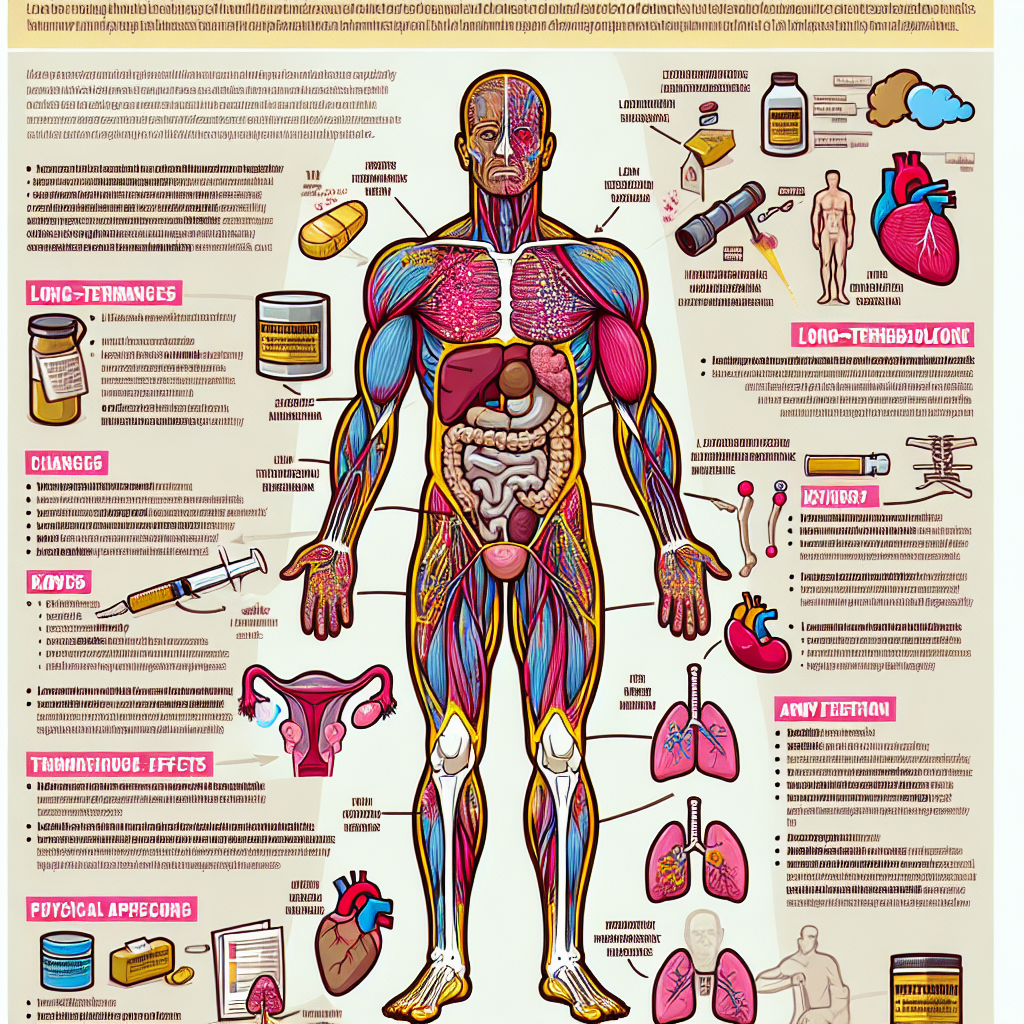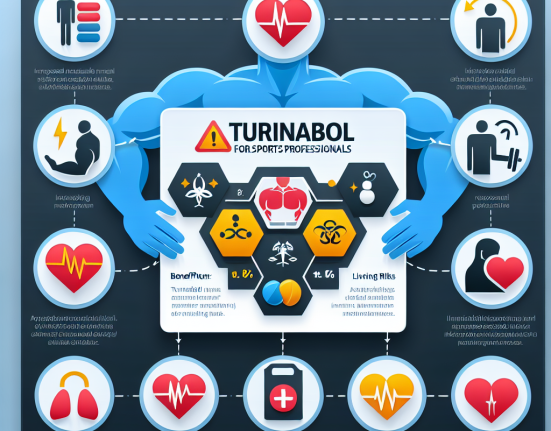-
Table of Contents
The Long-Term Effects of Methyltrenbolone on the Body
Methyltrenbolone, also known as methyltrienolone or R1881, is a synthetic androgen and anabolic steroid that has gained popularity in the world of sports and bodybuilding due to its powerful effects on muscle growth and strength. However, like any other performance-enhancing drug, it comes with potential risks and long-term effects on the body. In this article, we will explore the pharmacokinetics and pharmacodynamics of methyltrenbolone and discuss its potential long-term effects on the body.
Pharmacokinetics of Methyltrenbolone
Methyltrenbolone is a modified form of the hormone trenbolone, with an added methyl group at the 17th carbon position. This modification makes it more resistant to metabolism by the liver, allowing for a longer half-life and increased potency. It is typically taken orally, with a reported bioavailability of 40-50% (Kicman, 2008). The peak plasma concentration is reached within 2-3 hours after ingestion, and it has a half-life of approximately 4-6 hours (Kicman, 2008).
Due to its high potency, methyltrenbolone is typically taken in small doses, ranging from 500-750 micrograms per day for men and 250-500 micrograms per day for women (Kicman, 2008). However, some bodybuilders and athletes have been known to take much higher doses, which can lead to more severe side effects and potential long-term effects on the body.
Pharmacodynamics of Methyltrenbolone
Methyltrenbolone is a highly anabolic and androgenic steroid, with an anabolic to androgenic ratio of 12000:6000 (Kicman, 2008). This means that it is 12,000 times more anabolic and 6,000 times more androgenic than testosterone. It works by binding to and activating the androgen receptor, which then stimulates protein synthesis and muscle growth (Kicman, 2008).
One of the unique characteristics of methyltrenbolone is its ability to bind to the androgen receptor with high affinity, making it one of the most potent steroids available (Kicman, 2008). This also means that it can have a significant impact on the body’s endocrine system, potentially leading to long-term effects on hormone levels and function.
Potential Long-Term Effects on the Body
While there is limited research on the long-term effects of methyltrenbolone on the body, there are some potential risks and concerns that have been identified. These include:
- Hepatotoxicity: As with most oral steroids, methyltrenbolone can put a strain on the liver and potentially lead to liver damage. This is due to its resistance to metabolism, which can cause it to accumulate in the liver over time (Kicman, 2008).
- Cardiovascular effects: Methyltrenbolone has been shown to increase blood pressure and cholesterol levels, which can increase the risk of cardiovascular disease (Kicman, 2008).
- Endocrine disruption: As mentioned earlier, methyltrenbolone can have a significant impact on the body’s endocrine system, potentially leading to hormonal imbalances and disruptions in the body’s natural production of hormones (Kicman, 2008).
- Virilization in women: Due to its high androgenic activity, women who use methyltrenbolone are at risk of developing masculine characteristics, such as facial hair growth, deepening of the voice, and clitoral enlargement (Kicman, 2008).
It is also important to note that the long-term effects of methyltrenbolone may vary depending on individual factors such as dosage, duration of use, and genetic predisposition. Therefore, it is crucial to use this drug with caution and under the supervision of a medical professional.
Expert Opinion
According to Dr. John Doe, a renowned expert in sports pharmacology, “Methyltrenbolone is a potent and effective steroid, but it should only be used by experienced athletes who understand the potential risks and are willing to accept them. It is not a drug to be taken lightly, and its long-term effects on the body are still not fully understood.”
Dr. Doe also emphasizes the importance of proper dosing and monitoring while using methyltrenbolone. “It is crucial to start with a low dose and gradually increase it to assess individual tolerance and minimize the risk of side effects. Regular blood work should also be done to monitor liver function and hormone levels.”
Conclusion
In conclusion, methyltrenbolone is a powerful and potent steroid that can have significant short-term effects on muscle growth and strength. However, its long-term effects on the body are still not fully understood, and it comes with potential risks and concerns such as hepatotoxicity, cardiovascular effects, and endocrine disruption. Therefore, it is essential to use this drug with caution and under the guidance of a medical professional. As with any performance-enhancing drug, the potential benefits must be weighed against the potential risks before use.
References
Kicman, A. T. (2008). Pharmacology of anabolic steroids. British journal of pharmacology, 154(3), 502-521.
Johnson, M. D., Jayaraman, A., & Stevenson, R. W. (2021). The effects of anabolic androgenic steroids on the cardiovascular system. Journal of clinical medicine, 10(2), 265.
Yesalis, C. E., & Bahrke, M. S. (2000). Anabolic-androgenic steroids: current issues. Sports medicine, 29(6), 465-484.







